IHRC - World Health Day
Alliance > SMM IHRC > Actions > Africa > Cameroon
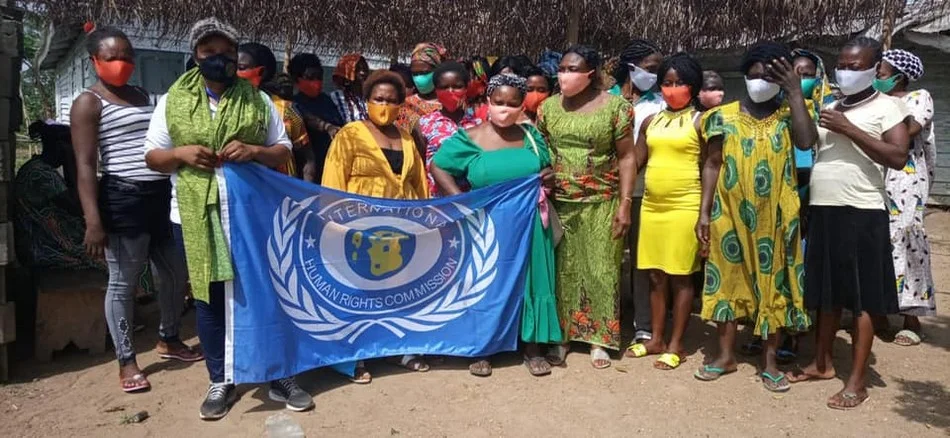
THE INTERNATIONAL HUMAN RIGHTS
COMMISSION (IHRC) SPECIAL MONITORING MISSION (SMM) CAMEROON JOINS THE
INTERNATIONAL COMMUNITY TO CELEBRATE WORLD HEALTH DAY
APRIL 7, 2021 CORONAVIRUS (COVID-19)
PREVENTION AND AWARENESS CAMPAIGN AND SHARING OF FACEMASK TO OVER 100 WOMEN IN
MONDONI, SOUTH WEST REGION OF CAMEROON
COVID-19 is a continuing global pandemic
of coronavirus disease caused by severe acute respiratory syndrome. It was
first identified in December 2019 in Wuhan, China. The World Health
Organization declared the outbreak a Public Health Emergency of International
Concern on 20 January 2020, and later a pandemic on 11 March 2020. The Johns
Hopkins University states that as of 5 April 2021, more than 131 million cases
have been confirmed, with more than 2.85 million deaths attributed to COVID-19,
making it one of the deadliest pandemics in history. To join the rest of the
world in commemorating the world health day, International Human Rights
Commission (IHRC) Special Monitoring Mission (SMM) Cameroon this 7th day of
April 2021 carried out a one day COVID-19 prevention, awareness and facemask
distribution campaign in the Mondoni Community of the South West Region of
Cameroon.
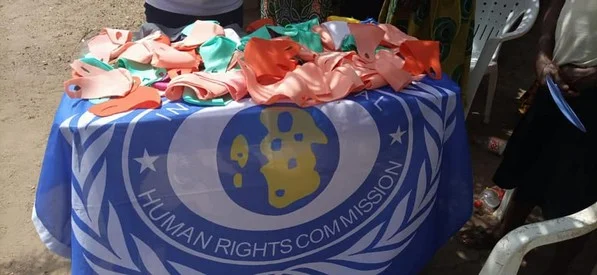
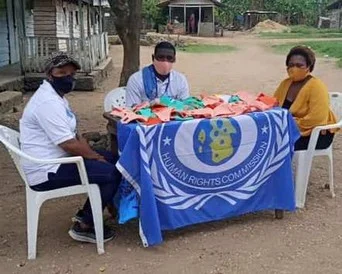
The campaign targeted a population of
approximately 200 women with the objective to complement Cameroon’s response to
COVID-19, by educating women on signs, symptoms, preventing transmission,
handling infected people and how to treat symptoms of COVID-19 at home.
Durig the first session of the campaign,
the IHRC SMM Cameroon’s Peace Ambassador/National Volunteers’ Coordinator H.E.
Holy Anagho Asanji took the women through an overview of coronaviruses where
she explained that they are a large family of viruses that cause illness
ranging from the common cold to more severe diseases such as Middle East
Respiratory Syndrome and Severe Acute Respiratory Syndrome (SARS-CoV). She
stated that the novel coronavirus is a new strain that has not been previously
identified in humans and that they are zoonotic, meaning they are transmitted
between animals and people.
After a glimpse through the overview of
coronaviruses, participants were enlightened by Ms. Nangwa Lillian (health
expert) on common signs of COVID-19 infection including respiratory symptoms,
fever, cough, shortness of breath and breathing difficulties. In more severe
cases, she said infection could cause pneumonia, severe acute respiratory
syndrome, kidney failure and even death. She also educated the women on
standard recommendations to prevent infection spread including regular hand washing,
covering mouth and nose when coughing and sneezing, thoroughly cooking meat and
eggs. Avoid close contact with anyone showing symptoms of respiratory illness
such as coughing and sneezing.
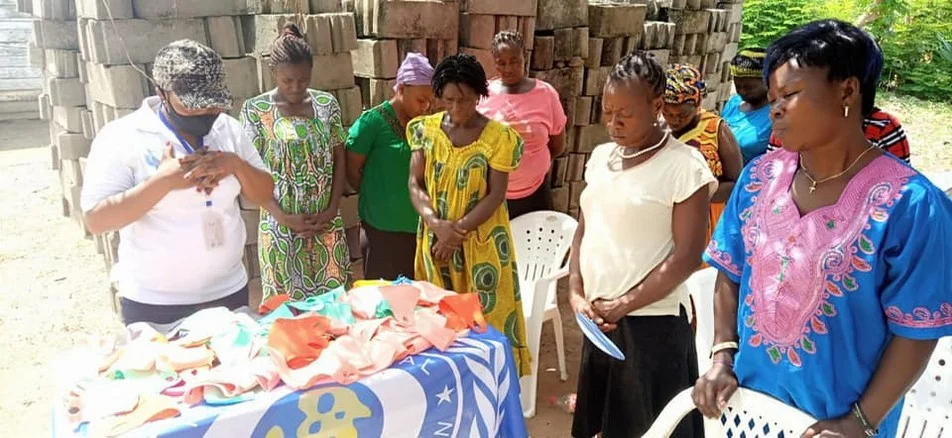
This session also culminated in a
discussion on some natural remedies to take — and avoid — for colds, flu and
COVID-19. This session was coordinated by H.E. Holy Anagho Asanji who
highlighted the fact that the world is experiencing a lot of fear now because
of COVID-19. This fear is due to the fact that they are dealing with a
brand-new virus, which conventional medical care has not been able to offer
many definitive answers. As such, she said it is pivotal to look for natural
remedies which are found everywhere. She further explained that mild cases of
COVID-19 could be treated at home by ensuring that the individual remains
hydrated, get plenty of rest, and take over-the-counter medicine also known as
OTC or non-prescribed medicine to reduce fever and pain. Also, if a person is
experiencing shortness of breath, they should try to remain calm and try
different positions to make it easier to breathe. If the shortness of breath is
persistent or worsens, they should seek medical attention. She concluded the
session by educating women on how to prepare some safe and effective common
home remedies such as lemon grass, lemon, limes, onion, ginger, Garlic,
cinnamon, honey, sleep, Shea butter, and herbal steam.

During the last session of the campaign,
the IHRC team, headed by H.E. Holy Anagho Asanji pointed that the number of
COVID-19 cases are continuing to rise in Cameroon, and so wearing a face
covering is more important than ever. She said although wearing a mask can get
tiresome, but they really are essential to help stop the spread of the virus.
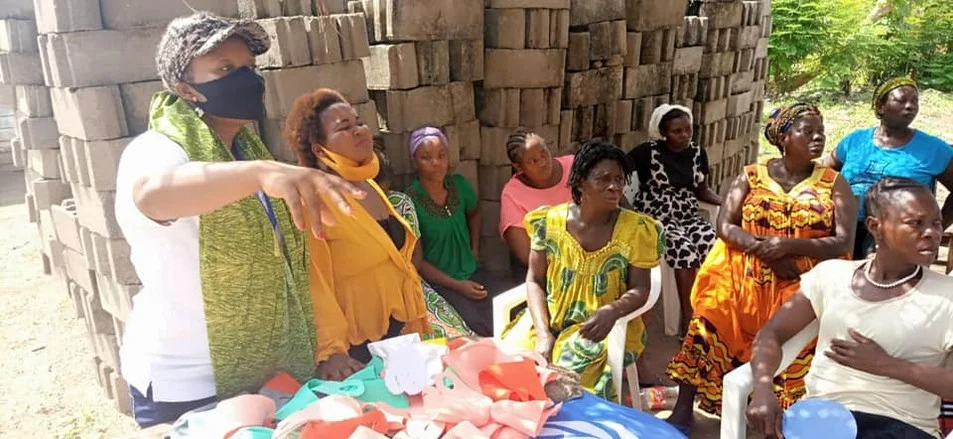
The session ended with the sharing of
facemask to over 100 women in the Mondoni to facilitate an awareness-raising
initiative in that community. Ojong Kevin (IHRC SMM volunteer) mobilized
Mondoni town criers, who provided a sound system that helped spread information
on COVID-19, while the Mondoni community chairman accompanied the team
throughout the entire activity.
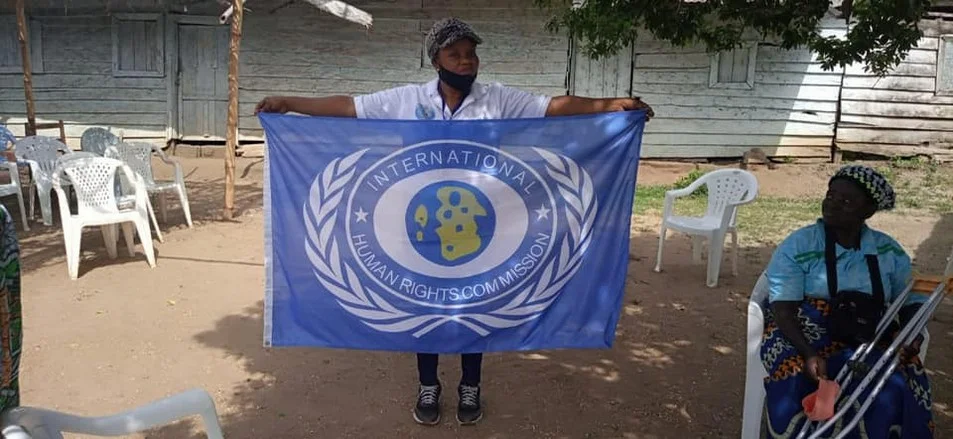
The campaign ended with a take home word
from the H.E. Holy Anagho Asanji who said if COVID-19 is spreading in the
Mondoni community, everyone should stay safe by taking some simple precautions,
such as physical distancing, wearing a mask, keeping rooms well ventilated,
avoiding crowds, washing hands regularly, and coughing into a bent elbow or
tissue.
NVC/Peace Ambassador for Cameroon/ H.E.
Holy Anagho Asanji
MNVC/ Peace Ambassador H.E Bienvenu
Goare Hiroua
IHRC SMM Volunteer/ Mr. Ojong Kevin
Tabot



